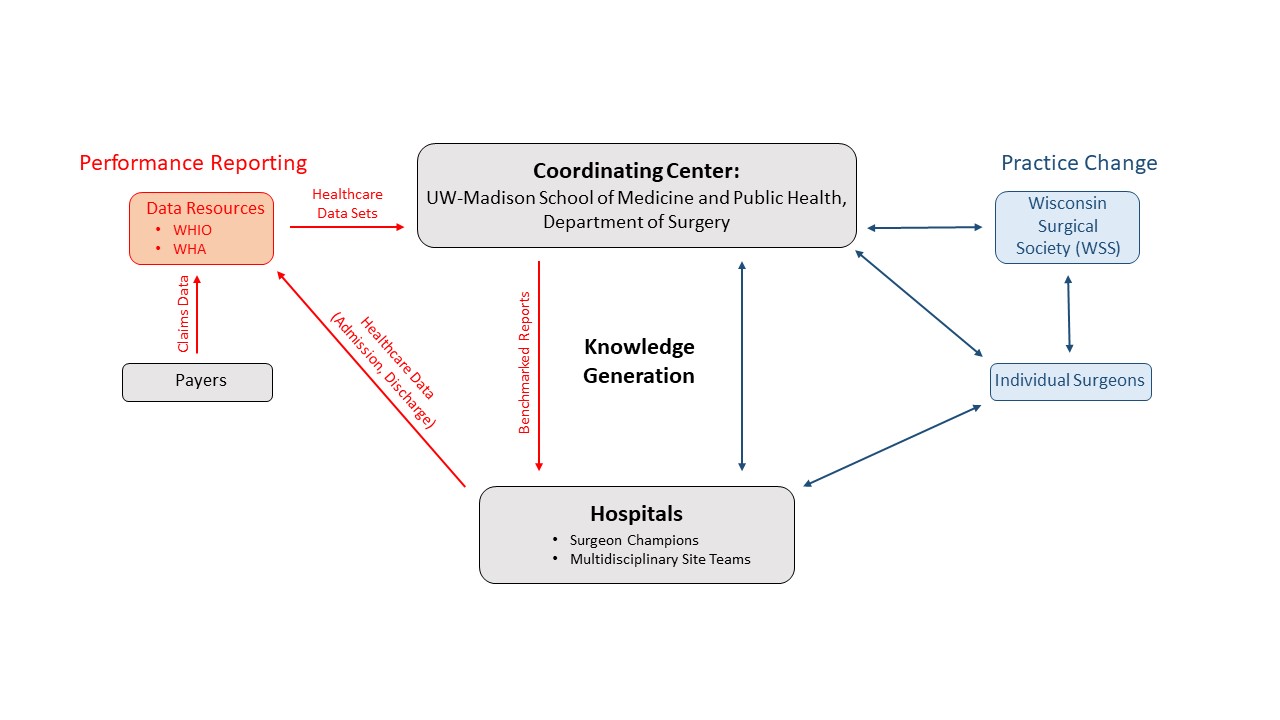What is a Quality Improvement Collaborative?
A Quality Improvement Collaborative is an organization comprised of health stakeholders—physicians, hospitals, related health care providers, administrators, payers, and related health care organizations—that aims to improve performance on a well-defined quality measure or set of measures.
Nationwide, surgical collaboratives vary in structure and funding models. Despite this variety, surgical quality collaboratives share several key elements:
- A robust infrastructure for collecting, aggregating, and disseminating data
- A platform for performance feedback and continued surgeon performance improvement
- Strong partnerships and engagement of surgical societies, payers, and quality improvement experts.
The Surgical Collaborative of Wisconsin (SCW) will adapt best practices from established surgical collaboratives to the health care landscape in Wisconsin, emphasizing strategies that encourage participation from surgeons across both community and academic settings.
How it works
The Surgical Collaborative of Wisconsin aims to improve quality and decrease cost by bringing together two key elements:
a robust platform for collecting and reporting data
a collaborative environment to support surgeons and hospitals as they identify and implement evidence-based practices
Performance Reporting
Hospitals and payers already submit healthcare data to the Wisconsin Hospital Association (WHA) and Wisconsin Healthcare Information Organization (WHIO). The Department of Surgery, which serves as SCW’s coordinating center, takes this data an additional step. Based on the quality improvement targets identified by collaborative members, our biostatisticians and programmers create confidential benchmarked reports for individual hospitals and surgeons.
Practice Change
Benchmarked performance reports comprise an important first step in bringing about meaningful practice change, as they help identify patterns of care that can inform quality-improvement initiatives and interventions. SCW offers surgeons and participating hospitals opportunities for education, innovation, peer exchange, and general quality improvement. The collaborative will provide updates on the latest evidence-based practices, as well as the support and resources for implementing these best practices.

